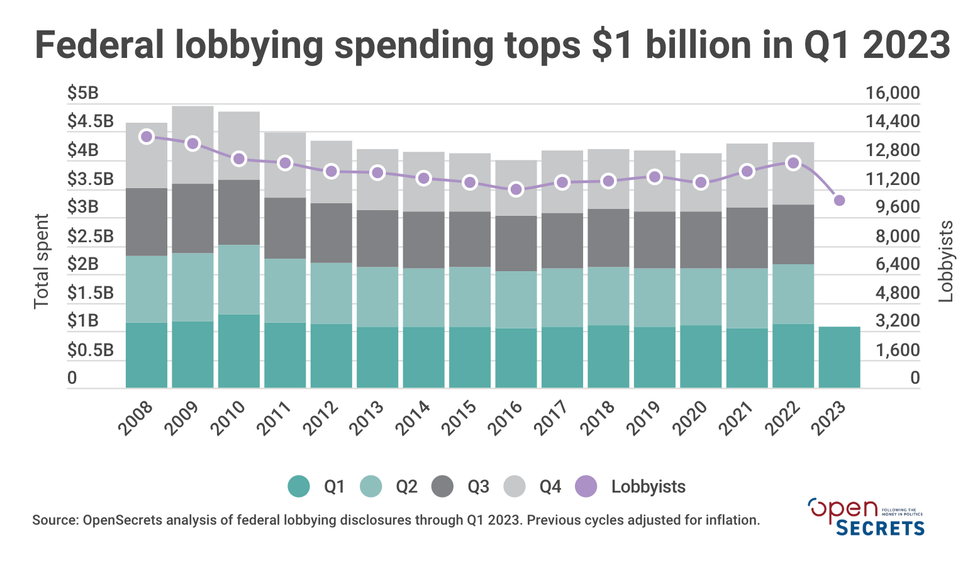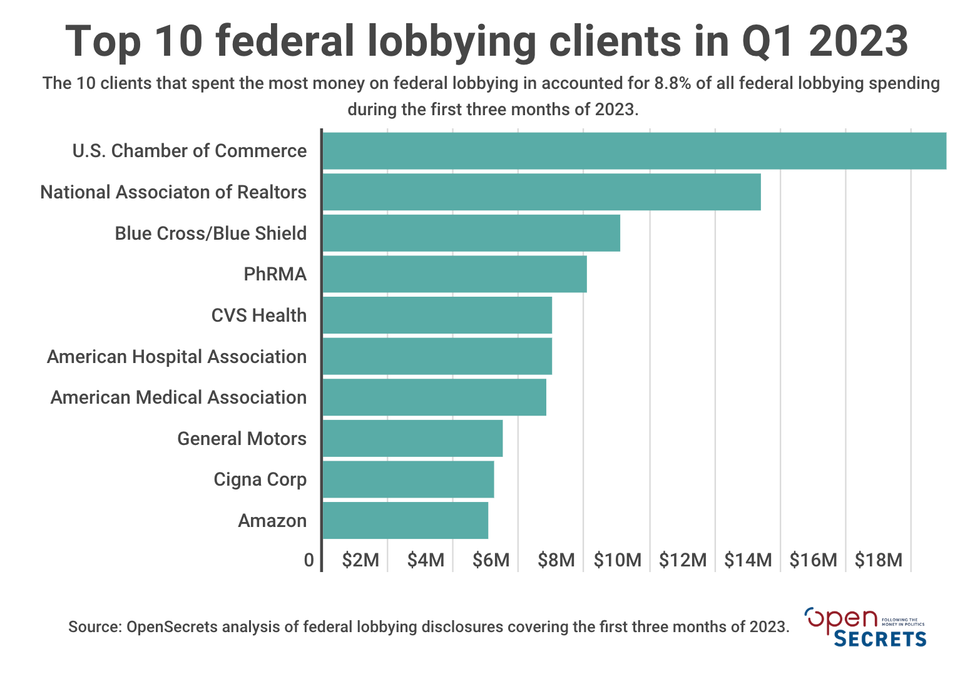Joe Manchin vows to block 'radical climate agenda,' rakes in oil and gas industry contributions
This article originally appeared in OpenSecrets. Sign up for their weekly newsletter to receive stories like this one in your inbox.
The Environmental Protection Agency unveiled a new proposal Thursday to cut greenhouse gas emissions from thousands of power plants burning coal or natural gas, two of the top sources of electricity across the United States. Sen. Joe Manchin (D-W.Va.), criticizing the “radical” proposal, issued his own scorched earth ultimatum on Wednesday ahead of the announcement.
Manchin, chair of the Senate Energy Committee and the top recipient of contributions from the oil and gas industry during the 2022 election cycle, vowed Wednesday to oppose every one of President Joe Biden’s nominees for the EPA “until they halt their government overreach.”
“This Administration is determined to advance its radical climate agenda and has made it clear they are hellbent on doing everything in their power to regulate coal and gas-fueled power plants out of existence, no matter the cost to energy security and reliability,” Manchin wrote in a statement released Wednesday.
The EPA proposal would require most fossil fuel-fired power plants to slash their greenhouse emissions by 90% between 2023 and 2040. The EPA projects the emissions reduction would deliver up to $85 billion in climate and health benefits over the next two decades by heading off premature deaths, emergency room visits, asthma attacks, school absences and lost workdays.
 Credit: OpenSecrets
Credit: OpenSecrets
“Alongside historic investment taking place across America in clean energy manufacturing and deployment, these proposals will help deliver tremendous benefits to the American people — cutting climate pollution and other harmful pollutants, protecting people’s health, and driving American innovation,” EPA Administrator Michael Regan said in a statement issued Thursday.
By 2035, the Biden administration aims to shift all electricity in the U.S. to zero-emission sources including wind, solar, nuclear and hydropower, Roll Call reported. In a written statement, Manchin warned the administration’s “commitment to their extreme ideology overshadows their responsibility to ensure long-lasting energy and economic security.”
Manchin is up for reelection during the 2024 election cycle, but he has not yet announced whether he will run.
Last month, West Virginia Gov. Jim Justice (R) announced his campaign for Manchin’s seat. The Democrat-turned-Republican is among the most popular governors in the country and leads a state former President Donald Trump won by nearly 40 percentage points in 2020.
Manchin has hammered the Biden administration in recent weeks for its implementation of the Inflation Reduction Act, the president’s signature climate change bill that the Democratic senator was instrumental in shaping.
“Neither the Bipartisan Infrastructure Law nor the IRA gave new authority to regulate power plant emission standards. However, I fear that this Administration’s commitment to their extreme ideology overshadows their responsibility to ensure long-lasting energy and economic security and I will oppose all EPA nominees until they halt their government overreach,” Manchin said in his Wednesday statement.
What Manchin did not disclose in his statement, however, is that the EPA proposal would jeopardize one West Virginia coal facility that’s particularly lucrative for Manchin’s family business, Enersystems Inc., POLITICO reported. Enersystems delivers waste coal to the Grant Town power plant, which was reportedly already struggling financially, troubles that are expected to deepen with the strict new climate proposal.
Manchin personally received $537,000 from Enersystems last year, according to POLITICO’s analysis of personal financial disclosures filed with the U.S. Senate, and he has been paid more than $5 million by the company since he was first elected in 2010. His son, Joe Manchin IV, now runs Enersystems. The Senator’s campaign has also benefited from political contributions from Enersystems, OpenSecrets reported last year.
“This is going to make it harder for them to stay around. You won’t find written anywhere in the rule that this is supposed to be putting coal plants out of business, but just do the math,” Brian Murray, director of the Nicholas Institute for Energy, Environment & Sustainability at Duke University, told POLITICO.
In 2020, Manchin’s home state of West Virginia generated about 90% of its power from coal, according to the U.S. Energy Information Administration. By contrast, less than 20% of the energy generated nationally comes from coal. Many states, including neighboring Virginia, are phasing out coal by replacing it with natural gas.
While the U.S. may show signs of moving away from coal, the Federal Energy Regulatory Commission told the Senate Energy Committee earlier this month that the country was not prepared to abandon coal and maintain a reliable energy system.
“Coal is more dependable than gas and yes, we need to keep coal generation available for the foreseeable future,” said Commissioner Mark Christie.
Manchin took another swipe at the EPA on Thursday during an energy committee hearing on permitting reform, when he accused the agency of preventing the development of carbon capture technology by denying companies the permits they need to trap captured carbon underground.
“Don’t tell me that you’re going to invest in carbon capture sequestration when we can’t get a permit to basically sequester the carbon captured,” Manchin said. “This is the game that’s being played. I know it, they know I know it, and we’re not gonna let them get away with it.”
OpenSecrets is a nonpartisan, independent and nonprofit research and news organization tracking money in U.S. politics and its effect on elections and public policy.



 Source: OpenSecrets
Source: OpenSecrets Source: OpenSecrets
Source: OpenSecrets